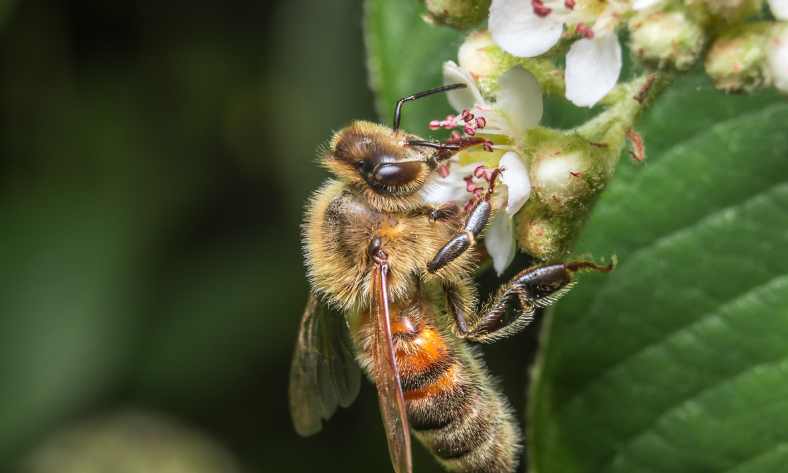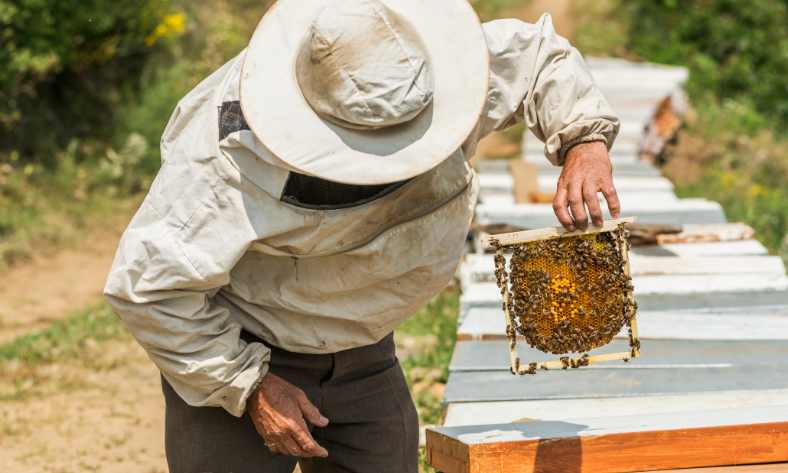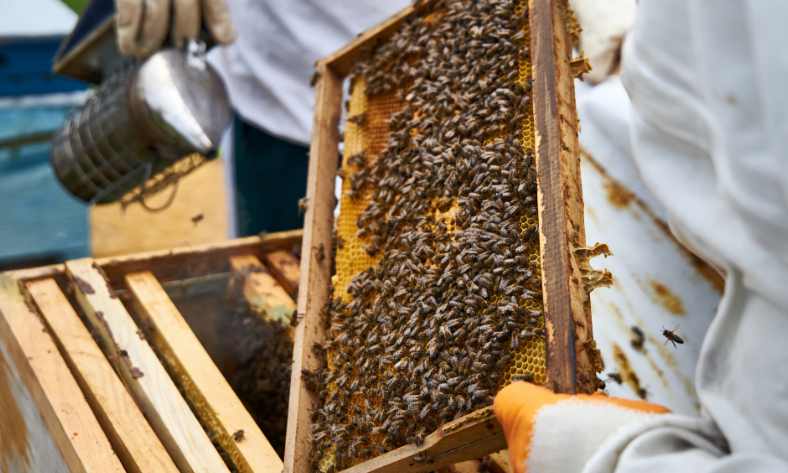Recent studies have shown that beekeepers have a significantly higher life expectancy than the general population. Researchers believe that this is due to the many health benefits of honey and beeswax. Some of these benefits include improved digestion, reduced inflammation, and protection against allergies and colds.
Beekeeping also provides an opportunity for social interaction and physical activity, both of which are linked to longevity. So if you’re looking for a way to add some sweetness to your life and improve your health at the same time, consider taking up beekeeping!

Beekeeping helps you live longer than average
The health benefits of keeping bees
Beekeeping not only helps our environment, but it can also have positive benefits for the beekeeper’s health.
Research has shown that regular activity with beehives can reduce stress, provide natural mood enhancement and increase the immune system. Furthermore, contrary to popular belief, do beekeepers do not get cancer from working with their bees– in fact, studies suggest it may do just the opposite.
Those who practice beekeeping are exposed to a range of beneficial bacteria which help stimulate and strengthen your body’s natural defense systems. Although further research is necessary to determine conclusively how much of an impact beekeeping can have on overall health, current evidence shows that it may offer multiple physical and mental health benefits, and that beekeeping can lead to a longer human lifespan.

The history of beekeeping
Beekeeping is an incredibly old practice, with some evidence showing it has been around for thousands of years. Not only can it be interesting and a stress reliever for those who take part in the activity, but healthy, too!
Bees produce a variety of healthy products such as honey and pollen which provide healthy fat burning properties and decrease your risk of cancer due to the high levels of antioxidants. It’s not surprising then that beekeeping has remained popular to this day, with many people using it as an alternative lifestyle choice or hobby.
How to become a beekeeper
Becoming a beekeeper is an excellent way to support local ecosystems and natural biodiversity. In order to get started beekeeping, you’ll need to research the basics of beekeeping: studying types of beehives, learning proper hive construction, and researching methods of pest control, and research essential beekeeping equipment.
Once you feel prepared enough, purchase a beginner’s hive and secure it in an area that provides the right environmental conditions—avoiding strong winds and excessive heat or direct sunlight. You can obtain bees through a local apiary or order them online.
Make sure you have all proper protective gear before starting your hives, including gloves, a bee suit, and often times a veil or hat with bug netting.
However, the best way to ensure optimal success is to seek advice about beekeeping from experienced beekeepers in your area; they can provide invaluable insights and beekeeping techniques that will help set your practice on the right track.
The dangers of being a beekeeper
Beekeeping is a rewarding activity, but safety must always be kept in mind. Considering the job calls for handling stinging insects, beekeepers must take extra precautions to make sure they work without incident.
As a beekeeper, safety gear such as protective clothing and safety glasses are important for minimizing harm from bee stings. In addition to safety gear, basic knowledge of first aid and safety procedures should also be acquired for responding to any unpleasant encounters with bees.
Furthermore, the use of chemicals can be necessary because of infestations or other health risks; however, their usage must be done carefully and monitored regularly due to potential toxicity dangers. When practiced safely and carefully, being a beekeeper can not only bring joy but even provide food security and sustainability benefits.

The life expectancy of beekeepers
Beekeeping has become increasingly popular over the years as many people have begun to recognize its importance in maintaining a healthy environment. Because of this, it is not particularly surprising that the life expectancy of beekeepers is much higher than that of the general population.
The unique benefits associated with beekeeping, such as improved physical and mental well-being and an overall healthier lifestyle, make it one of the healthiest hobbies anyone could pick up. From reducing stress to increasing levels of physical activity – these small changes can add up over time and translate into longer life spans for those who take part in this fascinating profession.
Being a beekeeper has many benefits, such as providing you with honey and helping to pollinate crops. It also has some risks, such as being stung by bees or developing an allergy to bee venom. However, these dangers are outweighed by the rewards of becoming a beekeeper. So if you’re interested in keeping bees, be sure to do your research and find out everything you need to know about this rewarding hobby.

Hi – I’m Erika, the head writer and expert beekeeper here at Just Beekeeping! I am a backyard beekeeper and proud member of the American Beekeeping Federation (ABF) and the Central Indiana Beekeepers Association. In addition, I am an educator with advanced degrees from UC-Berkeley and the University of Southern California (USC). I use my expertise to help others learn about beekeeping, and I am an advocate for all subjects bee related!